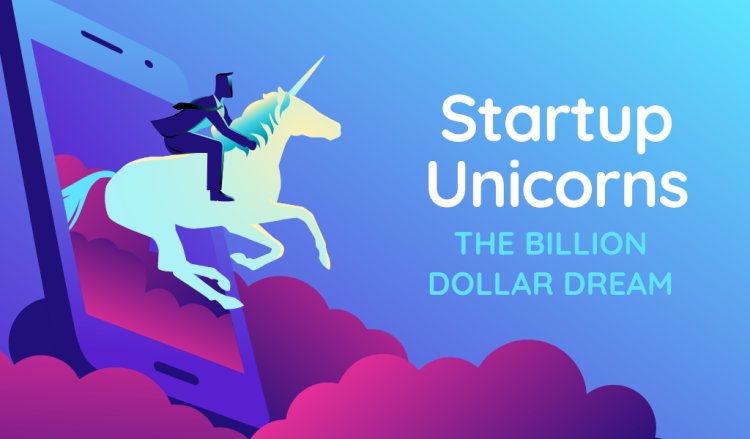The ideal $1 billion dollar startup that every entrepreneur hopes to create.
Despite being named after a well-known legendary monster, many people who put their ideas into action have as their primary objective the maximisation of this particular metric of financial success. The notion of the "unicorn company" has recently gained traction, and we'll be discussing it.

Developing a business strategy is only one aspect of what is required to run our own company. In the beginning, we will require a concept; but, as time goes on, we will need to hone that notion in order to determine what it is that we want to do and how we will accomplish it.
After that, we have to make certain that our concept is practical by examining our initial capital investment, initial cost analysis, location, and market research.
Following the completion of the initial phase's business study, registration, and other processes, we will be able to begin operating our company and working toward the revenue and expansion goals that we have established. This is difficult for most organisations, but some have been able to achieve significant growth in a short amount of time, reaching a valuation of over one billion dollars. These kinds of companies are referred to as "unicorns."
What exactly is a startup unicorn?
A startup firm is considered to be a unicorn if it has been in operation for fewer than 10 years, it is not publicly listed, it has not been purchased by a third party, and it has grown to a valuation of at least one billion dollars globally. Aileen Lee, the founder of Cowboy Ventures, is responsible for coining the term "unicorn" in 2013. She did so in reference to technology businesses that had been valued as much without having gone public. The term "unicorn" derives its name from the mythological animal.
CB Insights, a consulting business, estimates that there are already more than 1,100 unicorn firms on the earth, and that number is still growing. The majority of these startups are made possible by advances in technology. The United States of America is home to the most unicorn companies of any country in the world.
The term "unicorn" refers to newly founded businesses in which information and communication technology (ICT) plays a pivotal part. An SME is not the same thing as a startup. A firm that has just been established and possesses a business plan that is both scalable and technologically innovative is referred to as a startup. It does this by maintaining low material costs and attracting third-party investors (such as "business angels," who, in contrast to traditional investors, have a stake in the revenues of a company in addition to having a role in the administration of that firm). You may learn more about startups by reading this article (in Spanish) that was published on Openbank.
On the other hand, a small and medium-sized firm (also known as a SME) is classified as such based on factors such as its commercial turnover and human capital. In contrast to a startup, a small to medium-sized enterprise (SME) may or may not be a recently founded business. Additionally, SMEs almost never get funding from outside investors and often service a regional market. The scalability and expansion potential of a small to medium-sized enterprise might be hindered by business aspects that are more conventional in nature. Last but not least, a small to medium-sized enterprise (ME) may employ cutting-edge technology, but this wouldn't be the foundation of its business strategy.
What characteristics define a "unicorn"?
There is no one-size-fits-all recipe for developing a business that will become a unicorn. It is dependent on a wide variety of elements, some of which are beyond our ability to influence. The following are some of the most typical characteristics of unicorn startups:
- Unicorns are relatively new firms that have just emerged and are able to attain a valuation of over one billion dollars. These businesses often target a narrow or untapped segment of the market. Their staff is also a proof of their "youth," since the average age of their personnel is between 30 and 40 years old.
- Innovating new technologies is a fundamental component of the successful business model of unicorns since it makes both corporate operations and communication more effective. They frequently use social media in order to raise their profile.
- Scalability refers to the capacity of a business to expand rapidly while simultaneously reducing its operating expenses.
- Unicorns are exceptionally skilled at luring investors and preserving private equity despite the fact that they are not publicly traded companies.
- The business strategy of unicorns focuses on providing final customers with a game-changing option that satisfies their requirements. They concentrate not only on the quality of their product but also on the fulfilment of the needs of their customers.
What's Your Reaction?




















